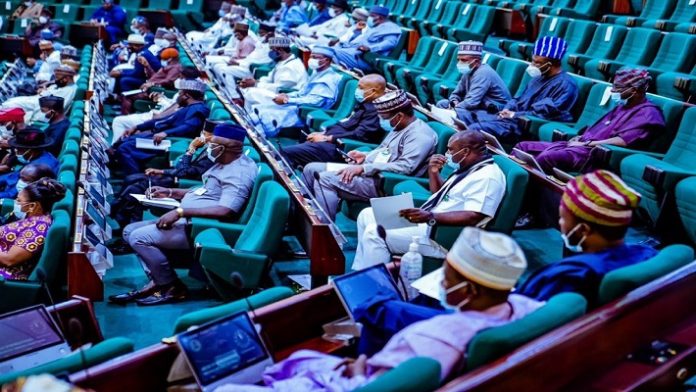The House of Representatives has called on security agencies to reduce the number of checkpoints on the Onitsha-Enugu expressway.
The resolution was passed sequel to the adoption of a motion by Rep Amobi Ogah (LP-Abia), during plenary in Abuja.
Presenting the motion, Ogah expressed concern over the current approach of mounting excessive security checkpoints, adding that it was counterproductive and undermined the economic stability of the region. He said that the House was aware that the security agencies in Nigeria were mostly involved in mounting security checkpoints on the nation’s major roads.
The lawmaker said that they included the Nigeria Army (NA), Nigeria Police Force (NPF), and the Federal Roads Safety Corps (FRSC).
“It is disturbing that in a journey of 105 km, there are approximately 28 security checkpoints; that is, at an average of 3.7 km each,” he said.
The House called on all the security agencies to ensure that security operatives acted within the bounds of the law, and did not use their positions to harass or exploit citizens.
Adopting the motion, the house noted that the mounting of numerous checkpoints along the motorway violated the constitutional rights of Nigerian citizens to free movement.
The House also decried affront to the dignity of the people, particularly in the South-East, where such levels of militarisation were more pronounced.
“It is worrisome that these security checkpoints appeared to be more of a tool for harassment than a genuine effort to ensure security,” it said.
The House urged the Joint Committees on Defence, Army, and Police Affairs, to dialogue with the service chiefs and the Inspector General of Police (IGP), to explore alternative security strategies that would not subject people to undue hardship.
It also mandated its Committee on Road Safety to dialogue with the FRSC Corp Marshal, with a view to regulating the number of its checkpoints on the Onitsha-Enugu Highway.
The lawmakers urged its Committee on National Security to engage its relevant agencies and advocate for community-based security initiatives and improved intelligence gathering.
This, according to the lawmakers, would effectively address regional security concerns, other than the use of excessive security checkpoints on the motorway.
Members mandated the joint Committees of Defence, Police Affairs, and National Security, to intensify strict oversight to ensure that security operatives act within the bounds of the law


